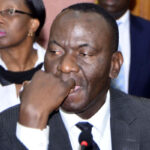The list of Uganda’s richest individuals is subject to constant change, driven by local and global economic trends, shifts in business sectors, and broader geopolitical factors.
Over the years, these rankings have reflected both Uganda’s evolving economic landscape and the fortunes of the entrepreneurs who dominate its key industries.
Several factors contribute to the dynamic nature of this list, with significant updates in wealth estimates occurring as industries fluctuate and new opportunities or challenges arise.
1. Economic Growth and Investment Opportunities in Uganda
Uganda’s economy has steadily grown over the past decade, largely due to its emerging sectors such as real estate, telecommunications, and agro-processing. Urbanization has led to an increase in demand for commercial and residential properties, with Kampala becoming the epicenter of these developments. Real estate moguls like John Bosco Muwonge and Sudhir Ruparelia have benefitted greatly from these trends, and their holdings in real estate have grown substantially, enabling them to secure top positions on the wealthiest list.
The growth of Uganda’s middle class has also fueled demand for quality housing and commercial spaces, allowing entrepreneurs like Hamis Kiggundu and Haruna Sentongo to expand their portfolios through large-scale residential and commercial property developments in prime locations such as Kisenyi and Ntinda.
2. Impact of Global Economic Trends
The wealth of many on this list is closely tied to global market fluctuations, particularly in sectors like agriculture, energy, and telecommunications. For instance, Charles Mbire, with interests in MTN Uganda, has seen his wealth influenced by global telecommunications trends, especially the rise in mobile and internet penetration across Africa. Similarly, the flower export business, which contributes significantly to Sudhir Ruparelia’s wealth, has been impacted by both global supply chain disruptions and changing consumer demands in Europe, one of Uganda’s main flower markets.
Moreover, global commodity prices and trade relations influence fortunes in sectors like manufacturing and agro-processing. Alykhan Karmali of Mukwano Industries, for instance, relies heavily on global markets for agricultural inputs and consumer goods manufacturing. When international prices rise, companies like his must adjust accordingly, impacting profitability and, subsequently, net worth.
3. Shifts in Industry Dominance
Certain industries have seen significant transformation in Uganda, leading to shifts in the wealth hierarchy. The COVID-19 pandemic, for example, severely affected the hospitality industry, which is a cornerstone of Karim Hirji’s wealth. His Imperial Group’s hotels faced immense challenges, though real estate holdings helped to cushion the blow. On the other hand, sectors like telecommunications and agro-processing proved more resilient during the pandemic, allowing figures like Mbire and Kiggundu to stabilize or grow their fortunes.
4. Emerging Technologies and New Investments
Another significant driver of change is the rise of technology and digital services. In Uganda, as in other parts of Africa, the digital economy is booming, opening up new areas of investment. Entrepreneurs who are diversifying into technology, such as Hamis Kiggundu, have been able to capitalize on the shift toward digital solutions in finance, retail, and communication.
5. The Impact of Global Crises
Geopolitical tensions, inflation, and global financial crises also play a role in shifting the wealth landscape. The Russia-Ukraine conflict, for instance, caused spikes in energy prices, which could influence the fortunes of those with energy investments like Charles Mbire, who has interests in the energy sector. Similarly, disruptions in global trade, inflation, and interest rate hikes have forced Ugandan businesses to adapt, with some sectors facing more pressure than others.
6. Government Policy and Local Factors
Local government policies, particularly in taxation and business regulation, also influence the wealth accumulation of Uganda’s elite. Changes in property laws, taxes on foreign-owned businesses, and infrastructure developments in cities like Kampala have created both opportunities and challenges for Uganda’s wealthiest entrepreneurs. For example, Haruna Sentongo has leveraged government efforts to develop urban infrastructure by focusing on agro-markets in Kisenyi, which has attracted significant investment from local traders.
These shifts and updates reflect the constantly evolving nature of wealth accumulation in Uganda. The fortunes of these top entrepreneurs are tied not only to their personal business acumen but also to the broader economic forces at play—both locally and globally. As Uganda continues to grow and integrate into the global economy, this list will undoubtedly continue to change, with new sectors and innovations shaping the landscape of wealth creation in the country.
31 total views , 1 views today
























